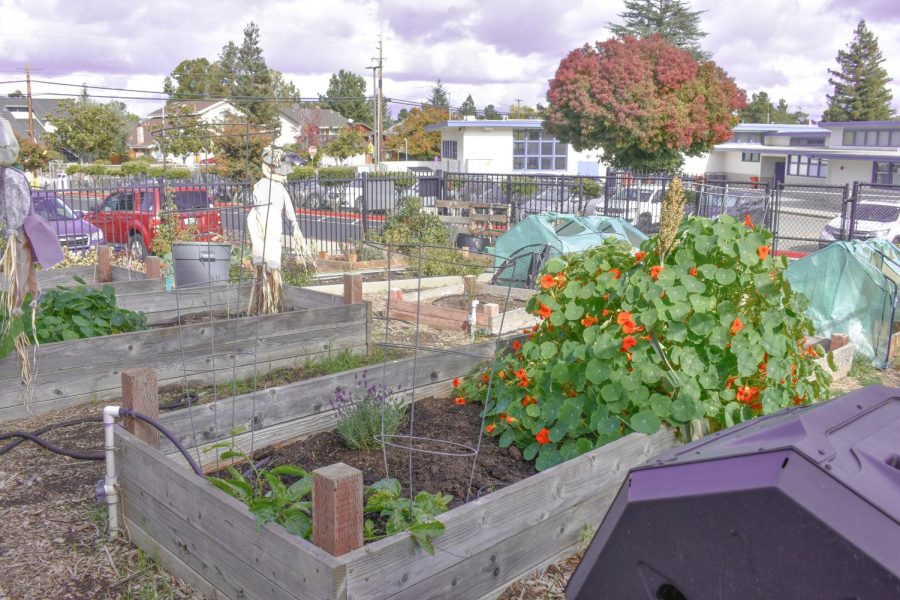Students in the ACT program plant flowers, fruits and vegetables using SSC funding.
Funding new projects
School Site Council grants new funding requests after transitioning from the pandemic
On Oct. 4, the School Site Council met for its first meeting of the year, and its first in person meeting in two years, to approve funding requests for various student and staff activities, including professional development conferences, school programs and school trips. During the meeting, students, staff and parents discussed the needs of the community and voted to determine how much money to allocate for each request.
According to senior Trisha Sreedhar, who helps lead the meetings, SSC is responsible for funding various programs across campus and allows her to serve her school community.
“SSC is a way for me to help my entire school community,” Sreedhar said. “I think being in SSC is really special because I’m not just helping the people in my clubs, but every possible group on campus.”
The council received a budget from FUHSD of around $65,000 for the 2022-2023 school year. After funding requests are submitted online by teachers and staff, they attend the monthly meetings and present their request for the SSC to review. Council members then vote to decide who to give funding to and how much money to supply.
After the onset of the COVID-19 pandemic, all in-person school trips and conferences were canceled, significantly reducing the funding requests that the SSC received.
“The money was not being used for its original purposes,” said Assistant Principal Janice Chen. “We used it in untraditional ways, like buying textbooks or a musical instrument which technically would not be coming out of those funds.”
Coming out of the pandemic, Chen notes that there has been a noticeable increase in funding requests. This year, funding requests have been submitted by teachers and staff including teacher Lisa McCahill, who requested funding for the Academic Community Transition program from the SSC during their October meeting.
“In the ACT Program, we help students learn [a] curriculum that is alternative, functional and vocational to prepare them for life after school,” McCahill said.
One example of an alternative curriculum that the ACT Program funded through the SSC is its gardening project. Every week, students in the ACT Program go to the MVHS garden and grow flowers, fruits and vegetables. Using SSC funding, McCahill is able to purchase soil, seeds and other gardening supplies. Another example is the ACT Program’s Coffee Cart, one of its small business projects aiming to teach students vocational skills.
“Every Thursday, we put out a Google Form to staff and offer coffee, tea[ and] fresh squeezed orange juice,” McCahill said. “Students every Thursday work to make those drinks and then sell and deliver the drinks to teachers and staff across the campus.”
Overall, McCahill found the funding process to be easy and quick and she appreciates the SSC for supporting the ACT program.
“I had a really positive experience speaking in front of the School Site Council because [I could also] get the word out about what the ACT program does,” McCahill said. “A lot of these things that we want to do require money. So the fact that School Site Council makes funding accessible to provide these opportunities for students is really wonderful.”

